Stillborn under occupation
Documenting Palestinian checkpoint births
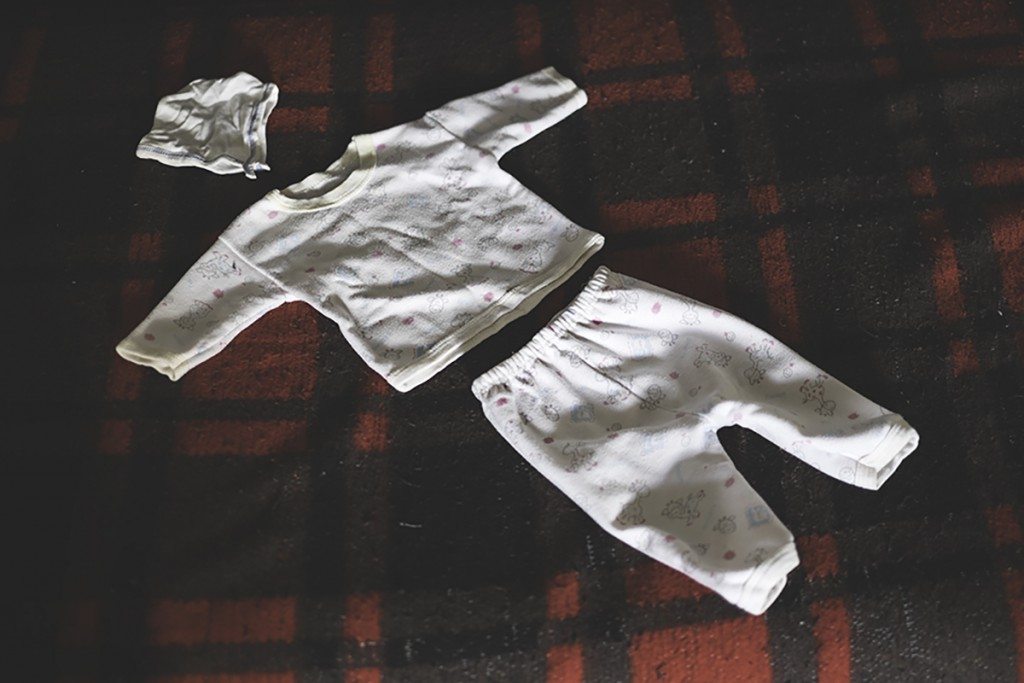
Samar Hazboun is a Palestinian photographer who has published several projects documenting life under occupation, including a photo essay of Palestinian teenagers jailed by Israel and one of the last generation of Palestinians born before the wall in the West Bank is completed. Her latest project, “Beyond checkpoints,” documents the often forgotten stories of Palestinian women who have given birth at Israeli checkpoints, or been delayed for hours before being able to cross and go to a hospital.
Between 2000 and 2005, more than 67 women gave birth at checkpoints. Some of these women lost their babies, others had children with physical defects due to a lack of medical attention. All of the parents share horrifying tales of their ordeals, and none of them have received any compensation. For this project, Samar took part in the 2015 Arab Documentary Photography Program (ADPP), which provides support and mentorship to photographers from across the Arab world. ADPP supported her project, and she was mentored by Peter Van Agtmael, a Magnum photographer.
Why did you decide to portray women giving birth at checkpoints?
I chose to speak about this topic because it is something that hasn’t been given the attention it deserves. It felt like it is an under-documented part of history, and in terms of photography it has not been done before. It’s very difficult to photograph something that happened so many years ago, where the proof is almost erased. Yet I still felt like the least I can do is collect the stories of these women and gather them in one place, adding to it a visual reference.
“The impact of this project might not be immediate but I hope that one day it will be used as a reference and proof that war crimes have been committed.”
How did you work on this series, what were the challenges?
I began researching and quite immediately found out that I was faced with a huge challenge as there was no list with names where I could find the women I was looking to interview. So I had to get in touch with various organisations who were able to give me a couple of names or names of people who might know someone who had suffered from this. The problem was that the names I got were either “Umm Ahmad” or “the wife of Hamdan Mamdouh.” Most of the phone numbers weren’t up-to-date anymore, so I found myself struggling to get in touch with these people. So I decided to go to villages and knock on doors to try to find these women by word of mouth. It was a lengthy and very exhausting process because most of these villages were very far from [where I live] and I had to travel up to three hours to get to some of them. It was a little bit of an oral history project if you like.
I asked each woman to show me an object that reminded her of [when it happened]: an object that bore witness to that day, or the clothes of the child if they had kept them. This was challenging; in some cases as many as 10 or more years had passed, so the women had to look into their storages to dig the clothes out. Most were surprised that after so many years someone wanted to document this. Most of these women had neither received any compensation nor were able to sue the soldiers.
The project also includes portraits of the children who survived, many of which have suffered of physical complications due to the delay in birth, lack of oxygen and other factors. And photos of the checkpoints where the forced births took place.
What kind of an impact do you think your project may have?
When the ADPP website was launched, I was surprised by a couple of emails I received from people in the US who told me that they had no clue that this was happening. You know it’s hard, because these stories go against how the Israeli army portrays itself, claiming to be one of the most ethical armies in the world and the Middle East’s only democracy. We should not let such stories get lost because they are one of the proofs that this army is committing war crimes without anyone holding them accountable. I see this as a part of Palestinian history and a brutal side to the conflict which has not been given the attention it deserves. I believe that each Palestinian should use whatever tool he/she has to transcribe these stories, which are now mostly forgotten, and turn them into something touchable in order to create this historical archive of the ongoing Palestinian catastrophe and ethnic cleansing.
The impact of this project might not be immediate but I hope that one day it will be used as a reference and proof that war crimes have been committed.
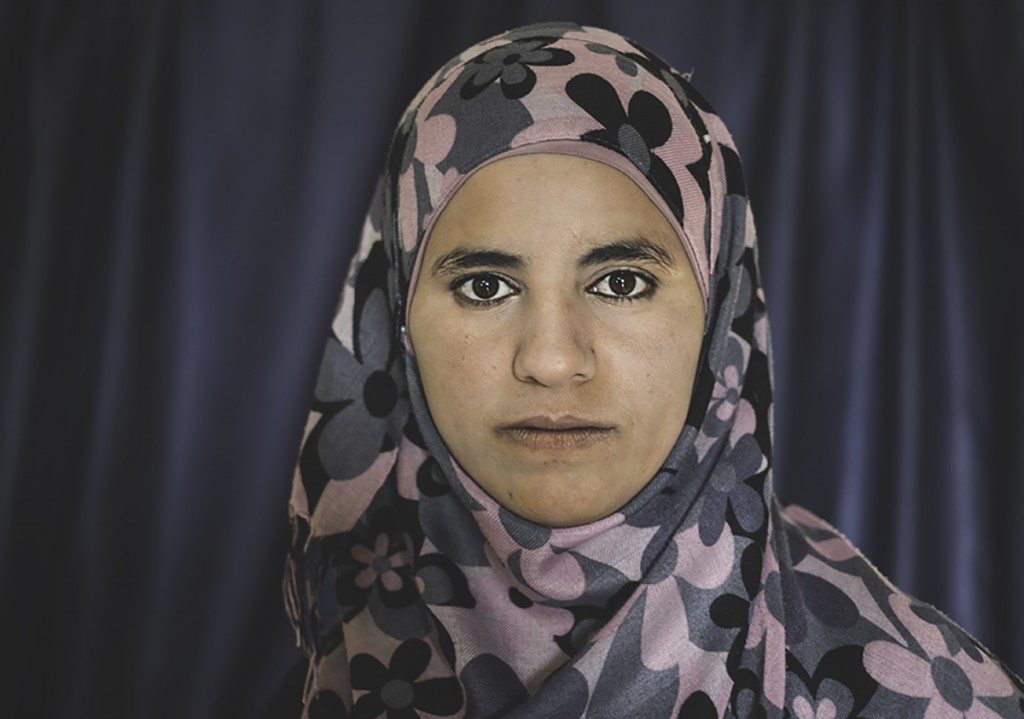
Amnah was 19 years old when she was forced to give birth to her first child at a military checkpoint. At 6 am, she woke up to birth pains and left the house with her mother for the hospital. Upon arriving at a checkpoint, they were held for five hours by Israeli soldiers. Amnah’s mother tried to explain her daughter’s situation as she was bleeding heavily, but they refused to let her through. By the time they were able to take another route to reach the hospital, the baby had died in her womb.
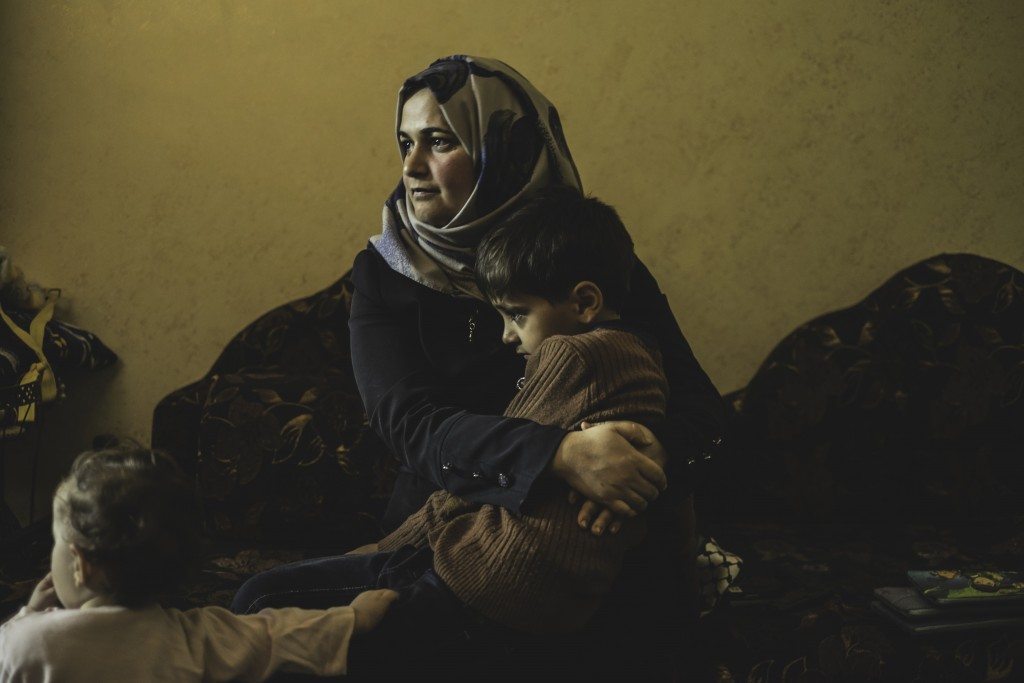
Kifah was pregnant with her first child when around 4 am she started feeling birth contractions. It was a cold night with temperatures at around -3 degrees Celsius. In order to reach a hospital, Kifah and her husband had to cross a checkpoint, but were denied permission to pass. As her husband tried to convince the soldiers that his wife needed to reach the hospital urgently, Kifah fell to the ground and started giving birth. As soon as the baby’s head started coming out, the soldiers allowed them to cross to the other side where an ambulance was waiting. Kifah gave birth to her son at the checkpoint, causing him irreparable brain damage.
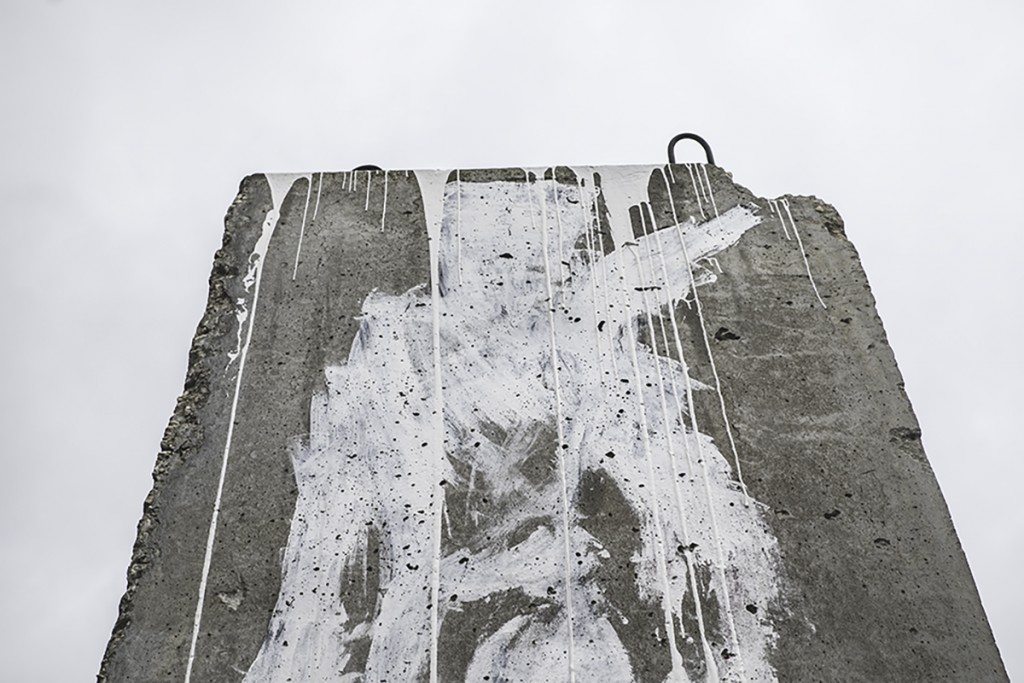
“The soldier was blond. I will never forget him staring at me with his colleague and laughing as I lay on the floor in labour”, Kifah.
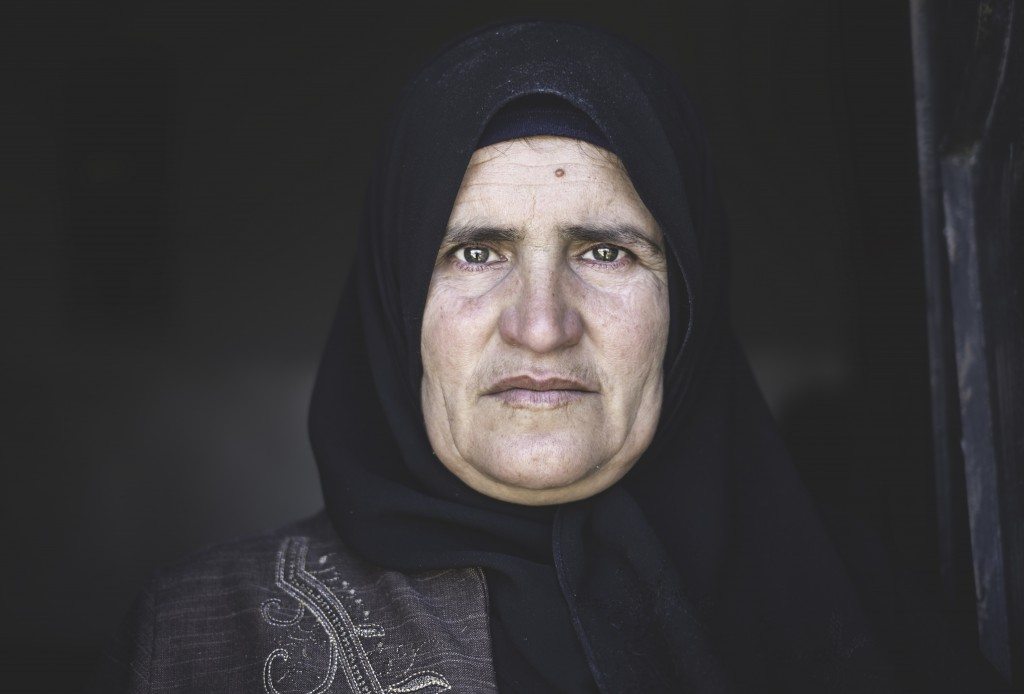
In 2003, Tarab, who was eight months pregnant and bleeding heavily, was prevented from crossing a checkpoint with her husband at 4 am. Her husband decided to take her to the hospital through another route, but faced another checkpoint where they again were denied the right to cross. A puddle of blood started forming under Tarab’s car seat as her husband negotiated with the soldiers. Finally, they were given permit to cross the checkpoint, but only on foot. Tarab’s husband carried her onto a cart and pulled her as he walked towards the hospital, but the cart lost balance and Tarab fell to the ground. The journey took them eight hours, but shortly after their arrival, they were notified the baby had died inside Tarab’s womb 30 minutes before reaching the hospital.
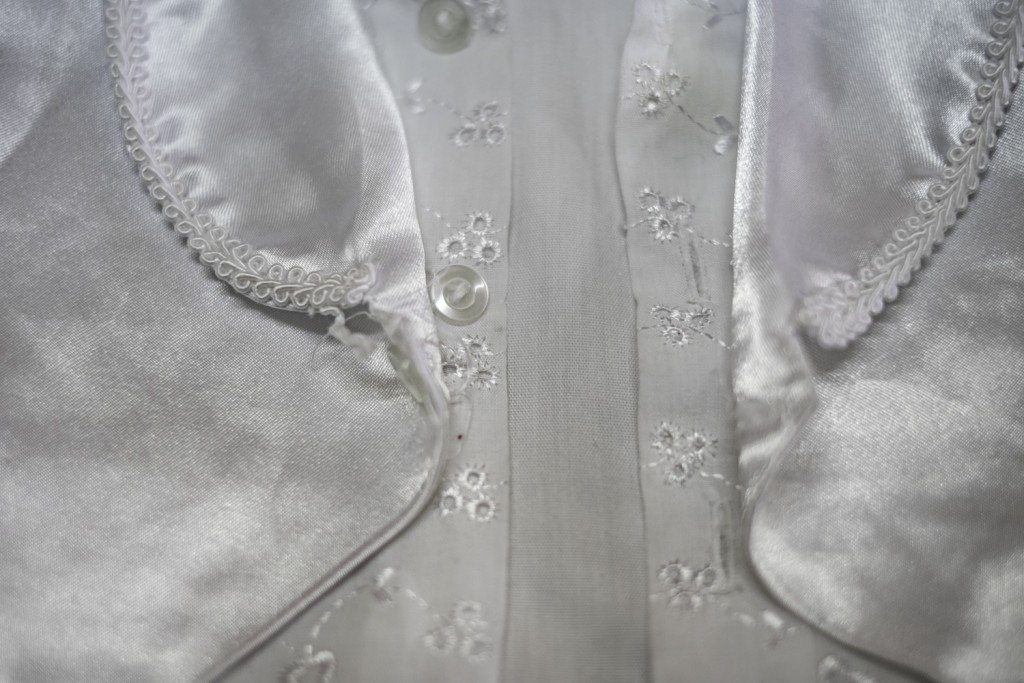
A traditional outfit bought by a Palestinian mother ahead of her child’s birth.
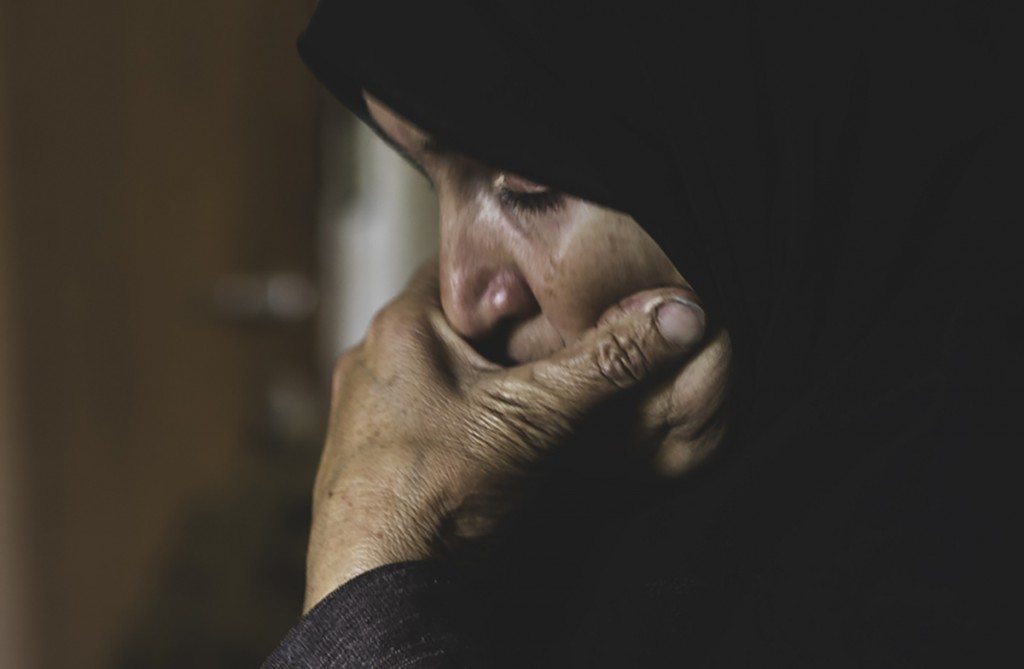
“When I see children going to school I feel intense pain. I imagine that my son could’ve been one of them.”
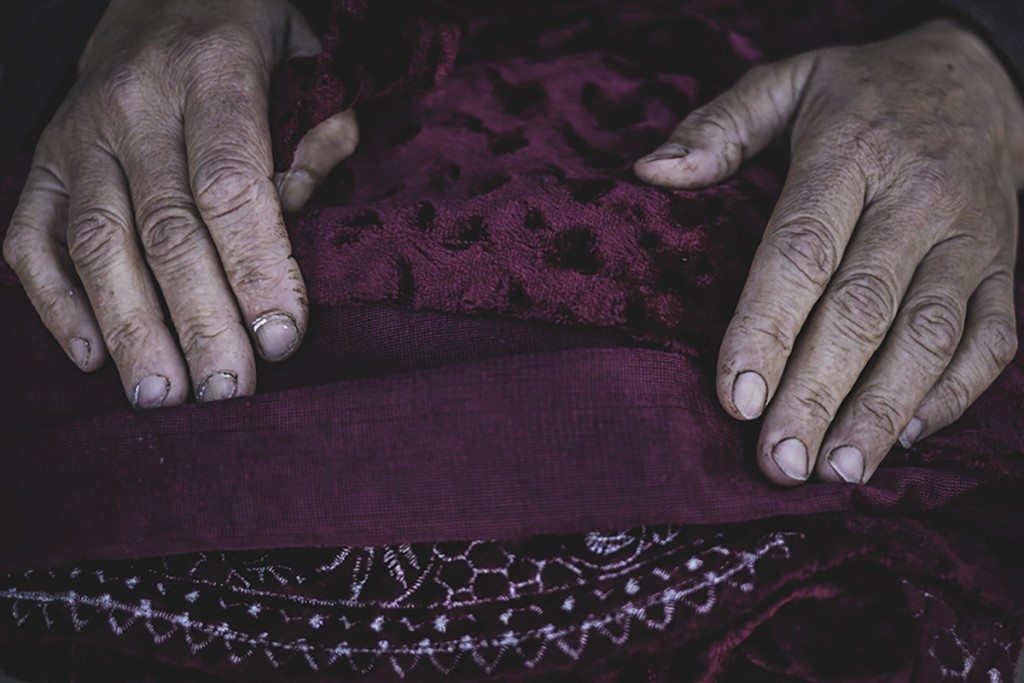
“I have no proof of what happened to me that day, except for this piece of cloth from what I was wearing that day. It bore witness to the worst day of my life.”
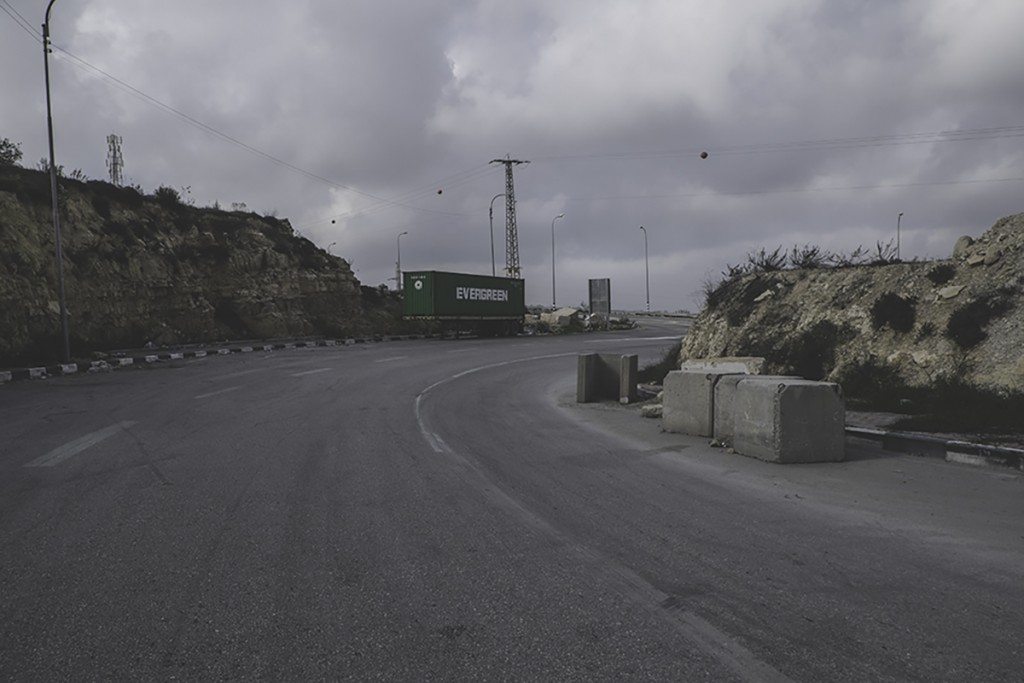
A checkpoint in the form of roadblocks on a road between Bethlehem and Hebron.
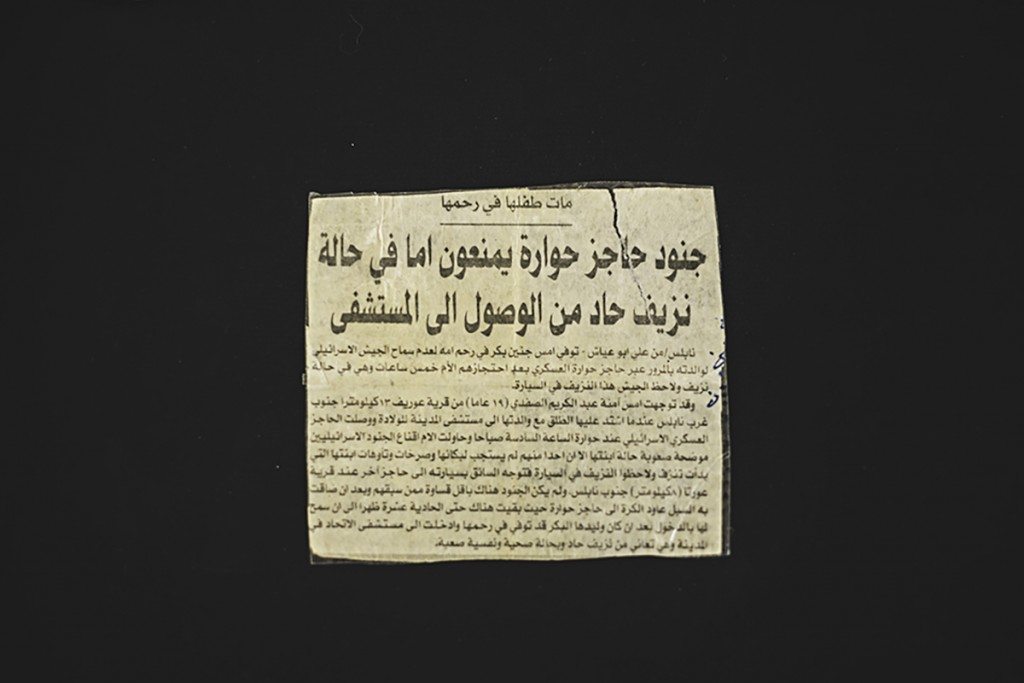
“Died in her womb
Soldiers at Huwwara checkpoint forbid a pregnant woman bleeding heavily from reaching the hospital.”
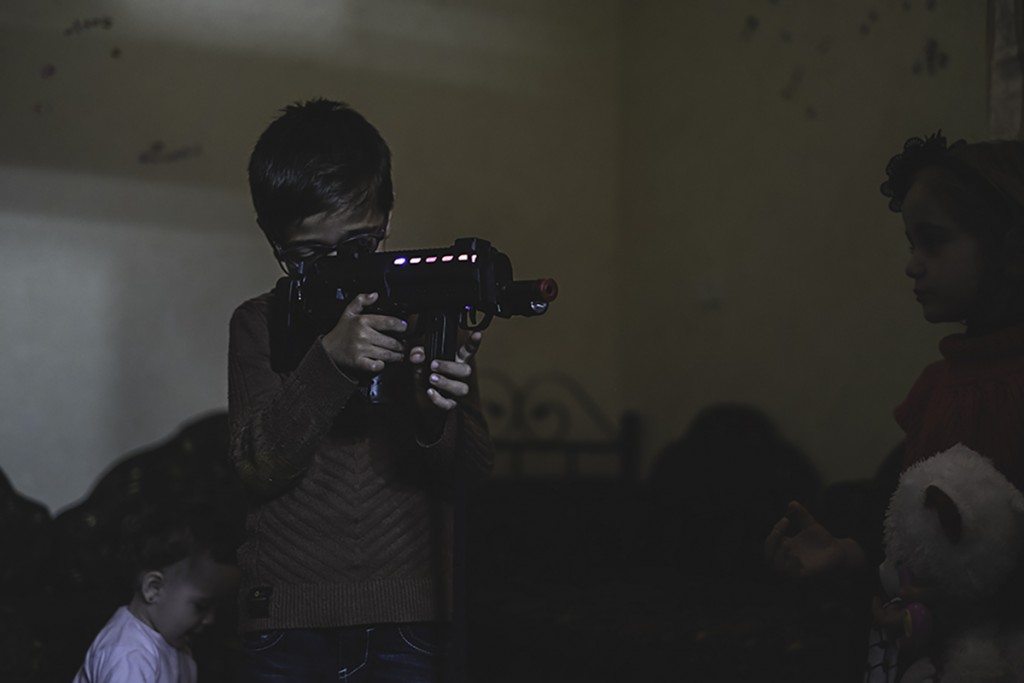
Due to harsh circumstances, Ahmed suffered from a lack of oxygen when born at a checkpoint. At the age of three months, Ahmed still did not react to sound or moving objects. He received medical treatment, but still suffers from eyesight problems and learning disabilities.
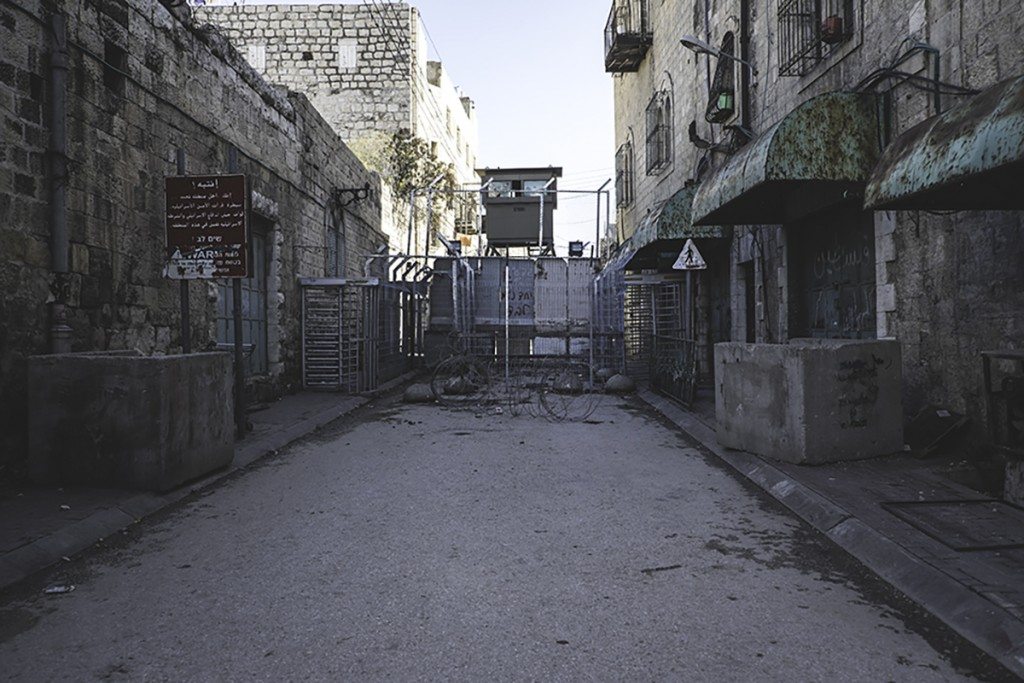
Al-Shuhada Street checkpoint in Hebron. At least three births have been documented at this checkpoint.






